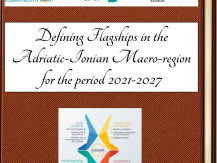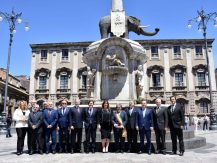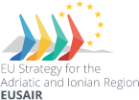EU investments in cultural sites: topic that deserves more focus and coordination
Presenting European Court of Auditors' Special report 08/2020

1. The auditors examined 27 projects in seven Member States: Germany, France, Croatia, Italy, Poland, Portugal and Romania. Without EU investments, almost half of the projects related to cultural facilities would not have been implemented. However, it is not clear what the EU is trying to achieve with its current initiatives, as these are not sufficiently focused or coordinated. Culture is involved in various strategies and policies at EU level. The coexistence of several frameworks with different actors and overlapping periods and objectives is, in the opinion of auditors, too complex and may cause an unclear situation.
2. In addition, the auditors found that EU cultural initiatives have a limited impact on the availability of EU funds. Member States' authorities do not take into account the participation of cultural sites in EU initiatives when financing projects. The European Regional Development Fund (ERDF), which provided around € 750 million per year between 2010 and 2017, is an important source of funding for public investment in cultural facilities for around one third of EU Member States.
3. However, the cultural dimension is not considered a priority in ERDF funding, which thus continues to focus on economic and social aspects. Investments in cultural facilities are therefore a means to an end, financed only if they help to improve the situation. The predominance of economic objectives also means that too little attention is paid to the sustainability of cultural facilities, economic competitiveness or promoting development. At the moment, in cases where the measure is not expected to achieve economic and social effects on the facility, if cannot be financed from the ERDF, even if the required work is urgent. The operation of EU cultural facilities and the financing of their investments are generally dependent on public subsidies. However, the auditors point out that there are not many incentives to increase revenue. Indeed, ERDF requirements for revenue-generating projects mean that the higher the net revenue, the less EU support will be provided.
4. The auditors therefore give a mixed assessment of the effectiveness and sustainability of ERDF projects related to cultural facilities.
5. To address the shortcomings identified, the auditors recommend to the European Commission:
- to improve the current EU strategic framework for culture in line with the Treaties,
- to encourage the use of private funds for the protection of Europe's cultural heritage,
- to strengthen the financial sustainability of ERDF-financed cultural facilities; and
- to take more specific measures to preserve heritage sites.
The report is available in all EU languages at: https://www.eca.europa.eu/en/Pages/DocItem.aspx?did=53376
You might be interested in

EUSAIR flagships all summed up!

3rd EUSAIR Annual Forum – CATANIA DECLARATION

The Hellenic Republic assumes the Presidency of the EU Strategy for the Adriatic and Ionian Region (EUSAIR) (1 June 2024 – 31 May 2025)








